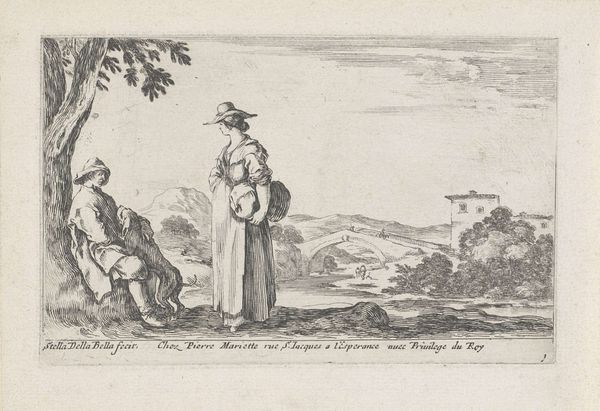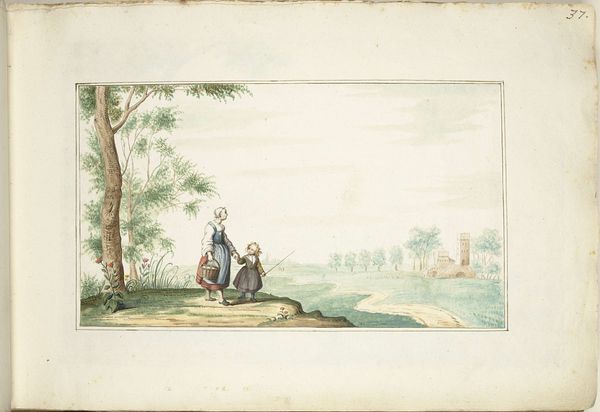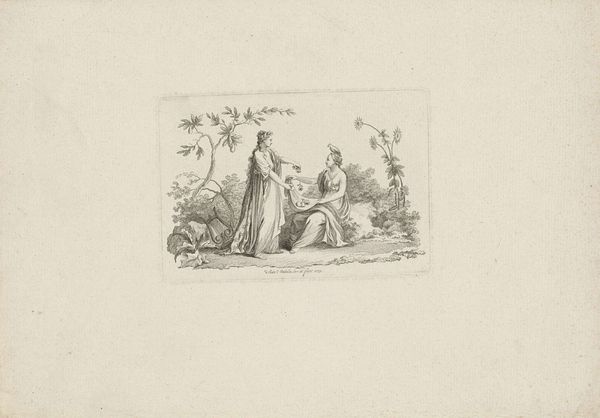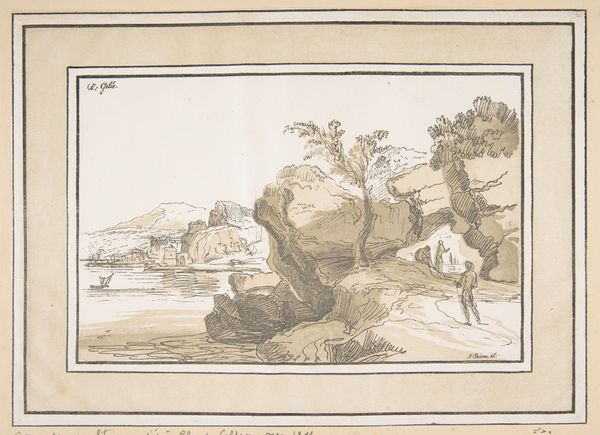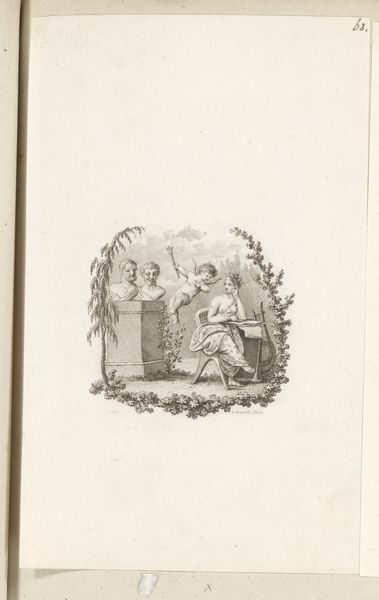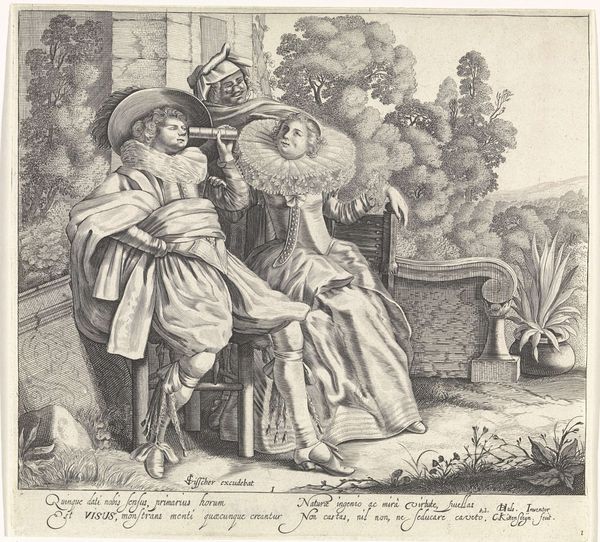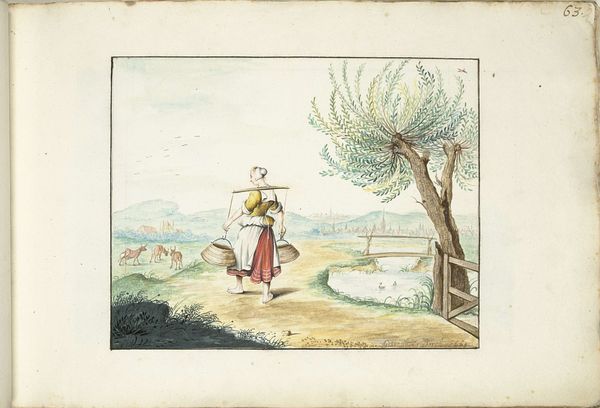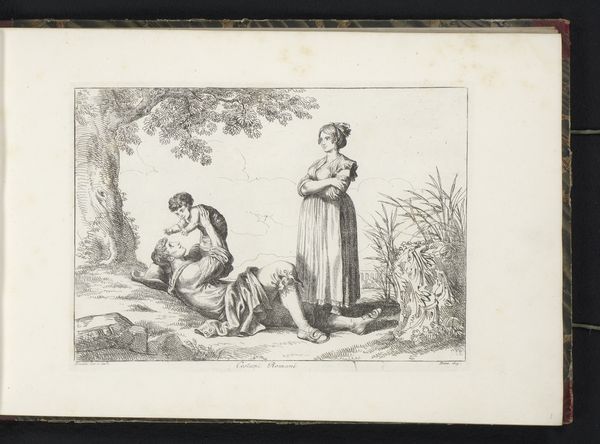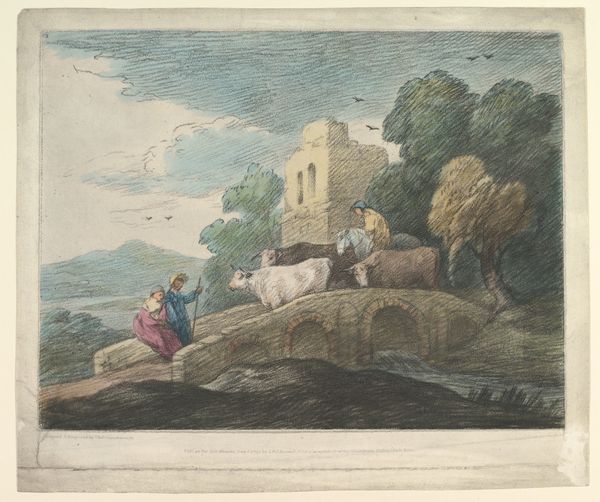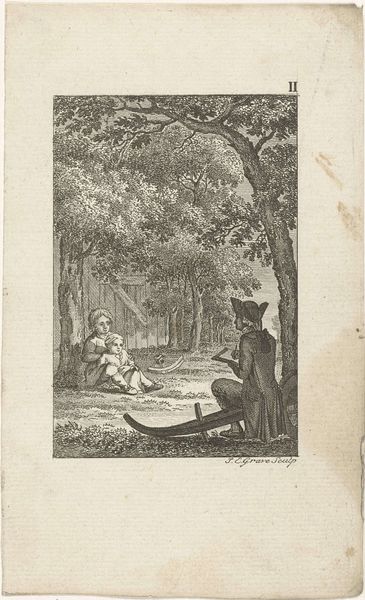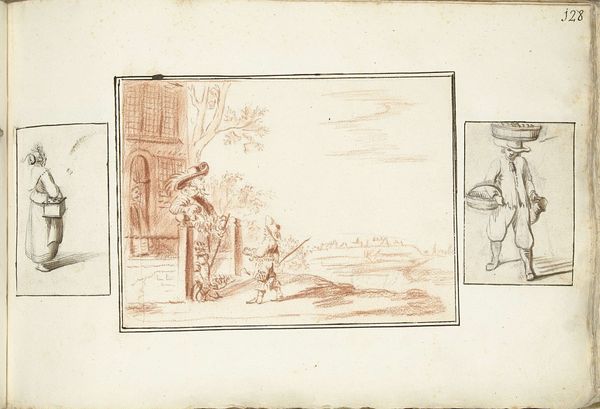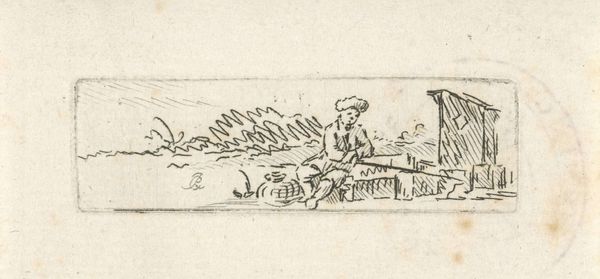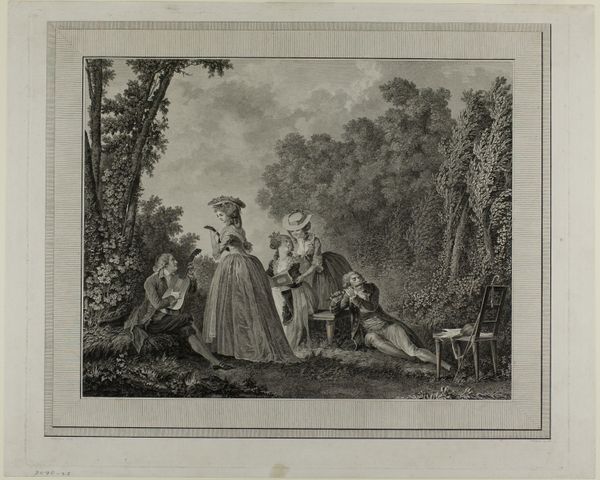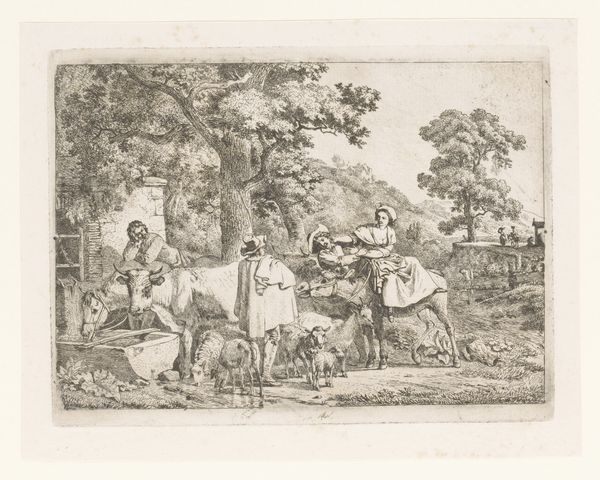
drawing, paper, ink
#
drawing
#
narrative-art
#
baroque
#
landscape
#
paper
#
ink
#
genre-painting
Dimensions: height 243 mm, width 360 mm
Copyright: Rijks Museum: Open Domain
Curator: Oh, isn't this delightful? The light, airy quality of the lines really draws me in. Editor: It has a simplicity to it, doesn't it? A sort of understated grace, despite the very deliberate, if slightly faded, lines. Curator: Indeed. We're looking at "Rebecca and Eliezer at the Well," a drawing rendered around 1610 by Gerard ter Borch the Elder. It's done in ink on paper and currently resides here at the Rijksmuseum. Editor: Ter Borch... he's telling a story, of course. What’s our Rebecca up to? She looks so industrious. Curator: This scene depicts Rebecca offering water to Eliezer's camels at a well near the city of Haran. It's taken from the Book of Genesis. Her kindness here led to her marriage with Isaac, a foundational narrative tied to ideas of fate and duty. Consider the implications of her selfless act as defining the entire future lineage! Editor: That water jug looks awfully heavy though... The weight of responsibility, perhaps? Haha! More seriously, I see a landscape filled with such minute, detailed figures. There is so much empty space, which strangely magnifies the small gestures and the quiet tension of the narrative unfolding by the well. What does this composition evoke in relation to the story? Curator: I read the stark contrast as symbolic, positioning Rebecca as an emblem of proactive generosity in contrast to a broader world that expects such sacrifices from women. The openness of the landscape suggests the expansive potential tied to Rebecca's eventual role as a matriarch, yet those duties can confine her just as easily as her compassion elevates her. Editor: That's beautifully put. The constraints and the liberation interwoven… like a complex braid of ink. Curator: Right. It leaves us contemplating not only a biblical narrative but the echoes of societal expectations across centuries. Editor: Precisely. An almost invisible yet incredibly resonant set of historical impositions... Makes me consider the implications of gendered labor in entirely new ways. Thanks, Ter Borch, for helping us unpack this, centuries on. Curator: It is that rare instance of art reaching through time and offering critical perspectives about power and identity.
Comments
No comments
Be the first to comment and join the conversation on the ultimate creative platform.
